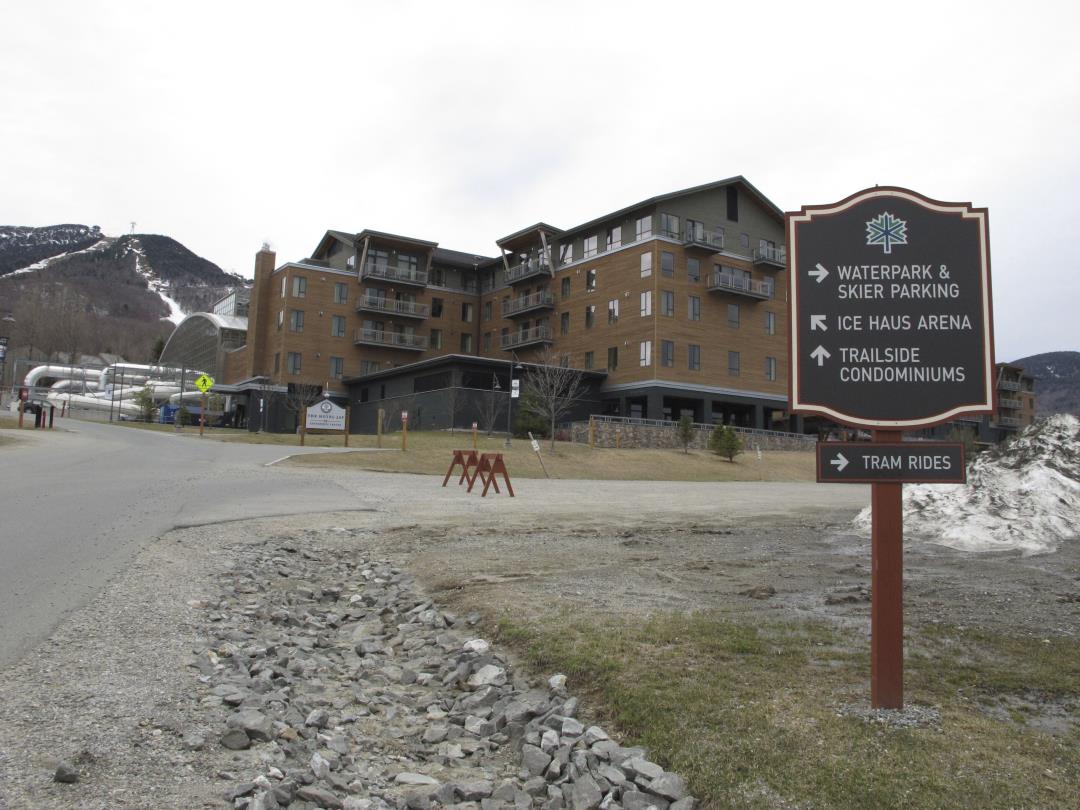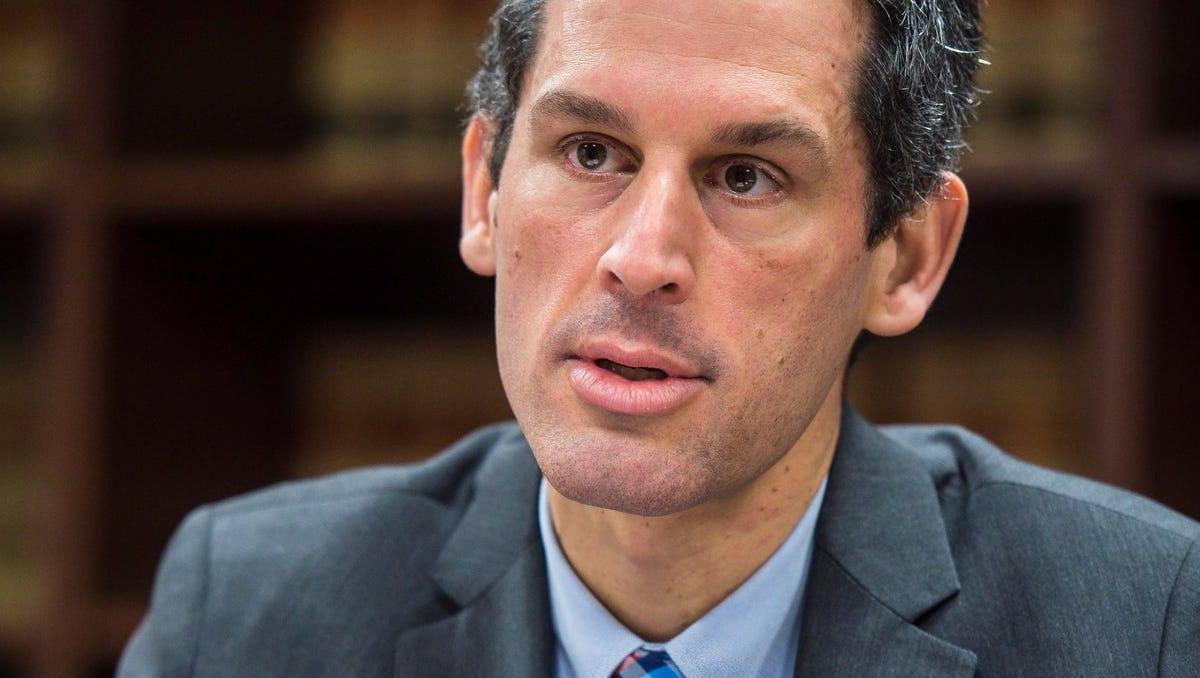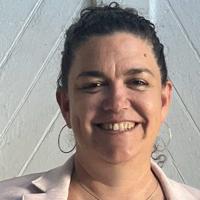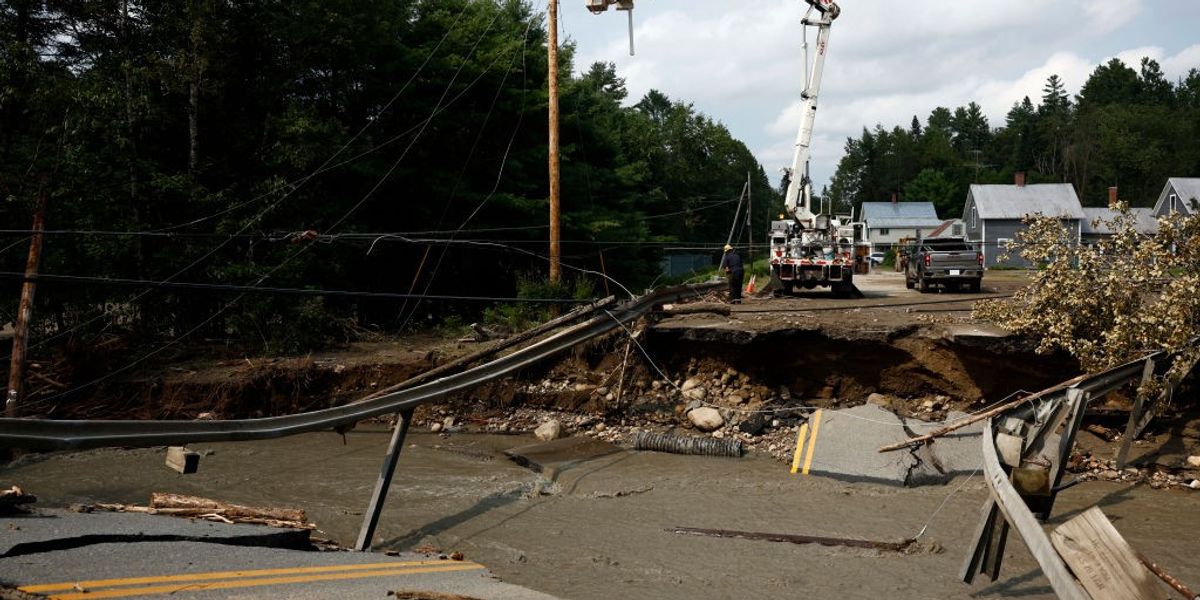Vermont
Vermont Shells Out $16.5M in Massive Fraud Case

The state of Vermont has agreed to pay $16.5 million to settle all pending and potential lawsuits from foreign investors in development projects at the Jay Peak resort, the ski area that was shaken by a massive fraud case involving its former owner and president, officials said this week. In 2016, the federal SEC and the state alleged that former Jay Peak owner Ariel Quiros and former president William Stenger took part in a “massive eight-year fraudulent scheme,” per the AP. The civil allegations involved misusing more than $200 million of about $400 million raised for various ski area developments from foreign investors through a visa program.
The EB-5 program encourages foreigners to invest in job-creating ventures in the US in exchange for a chance to earn permanent residency. Quiros and Stenger settled civil charges with the SEC, with Quiros surrendering more than $80 million in assets, including the two resorts. In 2019, Quiros, Stenger, and Quiros adviser William Kelly were indicted over the failed plan to build a biotechnology plant using tens of millions of dollars in foreign investors’ money. Quiros was sentenced last year to five years in prison; Stenger served just over nine months in prison; and William Kelly was sentenced to a year and a half. Foreign investors sued the state and its immigrant investor regional center, accusing it of inadequately supervising the projects.
The settlement announced Wednesday, if approved by the court, “will resolve all pending and potential lawsuits against the State that have been brought or could be brought by the approximately 850 investors in the Jay Peak EB-5 projects,” Attorney General Charity Clark said in a news release. The state will also continue to support investors’ pursuit of green cards. If that is successful, the overall settlement payment will be reduced by $4 million, Clark said. The $16.5 million will be paid over three years into the Jay Peak Receivership, which will distribute the funds. The investors paid over $400 million to the eight Jay Peak EB-5 projects. Last month, the state agreed to a $750,000 payment to settle claims from eight Jay Peak investors. (Read more Vermont stories.)

Vermont
Vermont expected to get light snow Saturday. Here’s the forecast

Wintry weather spreads across the South
Significant snow and icy precipitation are moving from Texas to the Carolinas.
Following a week of cold temperatures and harsh winds, this weekend will see light snow across New England, including Vermont.
While the snow is expected to cover the entire state of Vermont, this weekend’s snowfall will be calm, with no strong winds to create a storm and only a small amount of accumulation.
Here’s what to know about the timing, location and effects of Saturday’s snowfall in Vermont.
Where in VT will it snow Saturday?
According to the National Weather Service (NWS) of Burlington, light snow is expected throughout the day on Saturday, with the greatest chances of snow in the morning. Most areas of the state will see one inch of snowfall, with two inches possible in the middle region of the state.
While Vermont has seen extremely strong winds over this past week, the wind is expected to die down Friday night and stay mild throughout the snow Saturday. As of right now, the NWS has not issued any hazards or warning for Saturday, as the snowfall is expected to be calm.
VT weather next week
Temperatures will stay in the 20s throughout the weekend, with slightly warmer temperatures coming in next week. Snow showers are expected overnight from Monday to Tuesday.
Vermont
Committee leadership in the Vermont Senate sees major overhaul – VTDigger

Nine of the Vermont Senate’s 11 standing committees will have new leaders this biennium and three will be helmed by Republicans, Lt. Gov. John Rodgers announced from the Senate floor Thursday afternoon.
The committee overhaul follows the retirement, death or defeat of a considerable number of veteran chairs last year — and after Republicans picked up six seats in the 30-member body in November’s election. Democrats and Progressives now hold 17 seats, while Republicans control 13.
Unlike the Vermont House, where committee positions are chosen unilaterally by the speaker, Senate assignments are doled out by a three-member panel, the Committee on Committees, which this year includes two new participants: Rodgers, a Republican, and Sen. Ginny Lyons, D-Chittenden Southeast. Senate President Pro Tempore Phil Baruth, D/P-Chittenden Central, returned to the committee.
The trio had few experienced senators from which to choose, given that — as Baruth noted in his opening remarks to the chamber Wednesday — nearly two-thirds of the Senate’s members joined the body over the past two years. Illustrating the point, newly sworn-in Sen. Seth Bongartz, D-Bennington, was tapped to chair the Senate Education Committee. (Bongartz had previously served in the House since 2021 — and had tours of duty in both the House and Senate in the 1980s.)
Perhaps the most significant appointment went to Sen. Andrew Perchlik, D/P-Washington, who will chair the powerful Senate Appropriations Committee. He succeeds Sen. Jane Kitchel, D-Caledonia, who retired after leading the budget-writing panel for 14 years.
Sen. Nader Hashim, D-Windham, will helm the Senate Judiciary Committee, following the death last June of veteran Sen. Dick Sears, D-Bennington.
The Senate Natural Resources & Energy Committee will be led by Sen. Anne Watson, D/P-Washington. Its former chair, Sen. Chris Bray, D-Addison, was defeated in November.
READ MORE

Sen. Alison Clarkson, D-Windsor, takes over the Senate Economic Development, Housing & General Affairs Committee from Sen. Kesha Ram Hinsdale, D-Chittenden Southeast. Ram Hinsdale defeated Clarkson for the role of Senate majority leader in November, requiring the former to step down from her committee leadership position and allowing the latter to step up.
The three Republicans chairing panels are Sen. Richard Westman, R-Lamoille, who will run the Senate Transportation Committee; Sen. Russ Ingalls, R-Essex, who will head the Senate Agriculture Committee; and Sen. Brian Collamore, R-Rutland, who will lead the Senate Government Operations Committee. (Republicans similarly made gains in House leadership positions this year.)
Sen. Wendy Harrison, D-Windham, takes over the Senate Institutions Committee from Ingalls, who chaired it last biennium.
The sole returning chairs are Lyons, who will continue to lead the Senate Health & Welfare Committee, and Sen. Ann Cummings, D-Washington, who will retain control of the Senate Finance Committee.
Speaking to reporters Thursday afternoon, Baruth said the Committee on Committees had intentionally sought partisan equilibrium on certain panels. The Senate Education Committee, for example, which is expected to engage in heavy lifting as lawmakers reconsider the state’s education funding scheme, includes three Democrats and three Republicans. For a bill to clear that panel, four members would have to approve.
“What I intended for that committee… to do is to put out bipartisan bills,” Baruth said of Senate Ed.
Similarly, Baruth called the composition of the tax-writing Senate Finance Committee “very centrist,” with four Democrats and three Republicans.
“They’re going to have a lot of work to do, hard work, but the one thing I want them to think — to think long and hard about — is any kind of raising taxes or fees,” Baruth said. “The only time I’m looking to do that, if it’s necessary, is if it brings down the property tax.”
Ethan Weinstein contributed reporting.
Vermont
Gov. Scott comes out swinging on education funding during inaugural address

This article will be updated.
Gov. Phil Scott proposed a sweeping overhaul of what he called Vermont’s “broken and failing” education funding and governing systems during his inaugural address Thursday.
In his first major speech since voters overwhelmingly reelected him and booted Democrats up and down the ballot from office, Scott focused on the topic that most infuriated Vermonters in November: affordability.
“When it comes to politics, I know it can be hard to admit when you’ve gone down the wrong path and need to turn around,” Scott told House and Senate lawmakers during his fifth inaugural address at the Statehouse in Montpelier. “But we’re not here to worry about egos. We’re here to do what Vermonters need. And they just sent a very clear message: They think we’re off course.”
As is typical for an inaugural speech, Scott did not delve into specifics on Thursday — the details of his plan will be unveiled later this month during his budget address.
But in the broad strokes, Scott teased a plan that would overhaul Vermont’s byzantine school governance structure and see the state assume a direct role in deciding how much districts spend.
“The bottom line is our system is out of scale and very expensive,” Scott said. “And as obvious as these challenges are, we haven’t been able to fix it.”
At the heart of Scott’s vision is a transition to a so-called foundation formula, whereby the state would calculate how much districts should spend on their schools and provide them corresponding grants.
Currently, local voters decide how much their school districts should spend when they approve or reject budgets during Town Meeting Day in the spring. Whatever the amount, the state must pay. To calculate each town’s fair share into Vermont’s more than $2 billion education fund, residential property tax rates are adjusted based on how much each district is spending per pupil.
While potentially explosive in a state where local control is jealously guarded, a foundation formula is fairly typical across the country. And in Vermont, a bill to transition over to such a system even passed the House in 2018 with Democratic support. The architect of that 2018 legislation, then-GOP Rep. Scott Beck, was just elected to the Senate and named Republican minority leader for the chamber — where he is working closely with administration officials on their education plans.
Sophie Stephens
/
Vermont Public
“I think what we’re going to see [from the governor] here in a couple, three weeks is something that is far beyond just education finance,” Beck said in an interview Thursday. “I think it’s going to get into governance and delivery and outcomes.”
Beck said the transition to a foundation formula would force a series of questions, including whether districts would be allowed to approve any spending beyond the state’s base foundation grant.
“And in that case, where do they get that money from? And under what conditions can they access that money?” Beck said. “There’s a myriad of decisions that go into that whole thing. None of those decisions have been made. But I think in various circles, we have committed to going down the road of building a foundation formula in Vermont.”
Beck said he expects Scott’s education proposal will also include provisions that are designed to reduce staffing in the public education system.
When Scott first took office in 2016, the state spent about $1.6 billion annually on public schools. This year, that number will exceed $2.3 billion.
Vermont schools now have one staff person for every 3.63 students, the lowest ratio in the United States. In 2018, Scott pushed hard, and unsuccessfully, for legislation that would have instituted mandatory caps on staff-to-student ratios.
“With what we’re spending, we should not be in the middle of the pack on any educational scorecard,” Scott said. “And our kids should all be at grade level in reading and math. In some grades, less than half hit that mark. While educators, administrators, parents and kids are doing their very best to make things work, the statewide system is broken and failing them.”
Inaugural and state-of-the-state speeches tend to include a laundry list of policy ideas. But Scott’s 43-minute speech was focused almost entirely on education and housing — he renewed calls to trim development regulations and to bolster funding for rehabbing dilapidated homes.
Scott only briefly discussed last summer’s floods, and made glancing mentions of public safety, climate change, and health care. The governor, who voted for Vice President Kamala Harris in November, made no mention of President-elect Donald Trump or national politics.
Seeking to highlight some successes, the governor noted that overdose and traffic fatalities have declined recently, the state has welcomed more than 1,000 refugees in the past few years, and that the state park system saw near record visitation last year.
The governor has long argued that Chittenden County is prospering at a rate disproportionate to the rest of Vermont. He intensified that rhetoric in Thursday’s speech.
“As the rest of the state struggles to catch up, they carry the same burden of increasing taxes and fees and navigate the same complicated mandates and regulations,” the governor said. “And regardless of how well-intentioned these policies are, they’re expensive and require resources that places like Burlington, Shelburne and Williston may have, but small towns like Chelsea, Lunenburg, Peacham, Plainfield — and even Rutland, Newport or Brattleboro — do not. Too many bills are passed without considering the impact on these communities.”
Early in his speech, Scott paid tribute to several veteran legislators who died in the past year, including senators Bill Doyle and Dick Sears and representatives Don Turner, Bill Keogh, and Curt McCormack. Scott choked up and was visibly emotional when his recalling “my dear friend and mentor,” Sen. Dick Mazza, who died in May.
Former Governors Peter Shumlin, Jim Douglas and Madeleine Kunin attended the speech.
Subscribe to Capitol Recap, our weekly email newsletter featuring the latest headlines from the Statehouse.
Have questions, comments or tips? Send us a message.
-

 Business1 week ago
Business1 week agoThese are the top 7 issues facing the struggling restaurant industry in 2025
-

 Culture1 week ago
Culture1 week agoThe 25 worst losses in college football history, including Baylor’s 2024 entry at Colorado
-

 Sports1 week ago
Sports1 week agoThe top out-of-contract players available as free transfers: Kimmich, De Bruyne, Van Dijk…
-

 Politics1 week ago
Politics1 week agoNew Orleans attacker had 'remote detonator' for explosives in French Quarter, Biden says
-

 Politics1 week ago
Politics1 week agoCarter's judicial picks reshaped the federal bench across the country
-

 Politics6 days ago
Politics6 days agoWho Are the Recipients of the Presidential Medal of Freedom?
-

 Health5 days ago
Health5 days agoOzempic ‘microdosing’ is the new weight-loss trend: Should you try it?
-

 World1 week ago
World1 week agoIvory Coast says French troops to leave country after decades



















